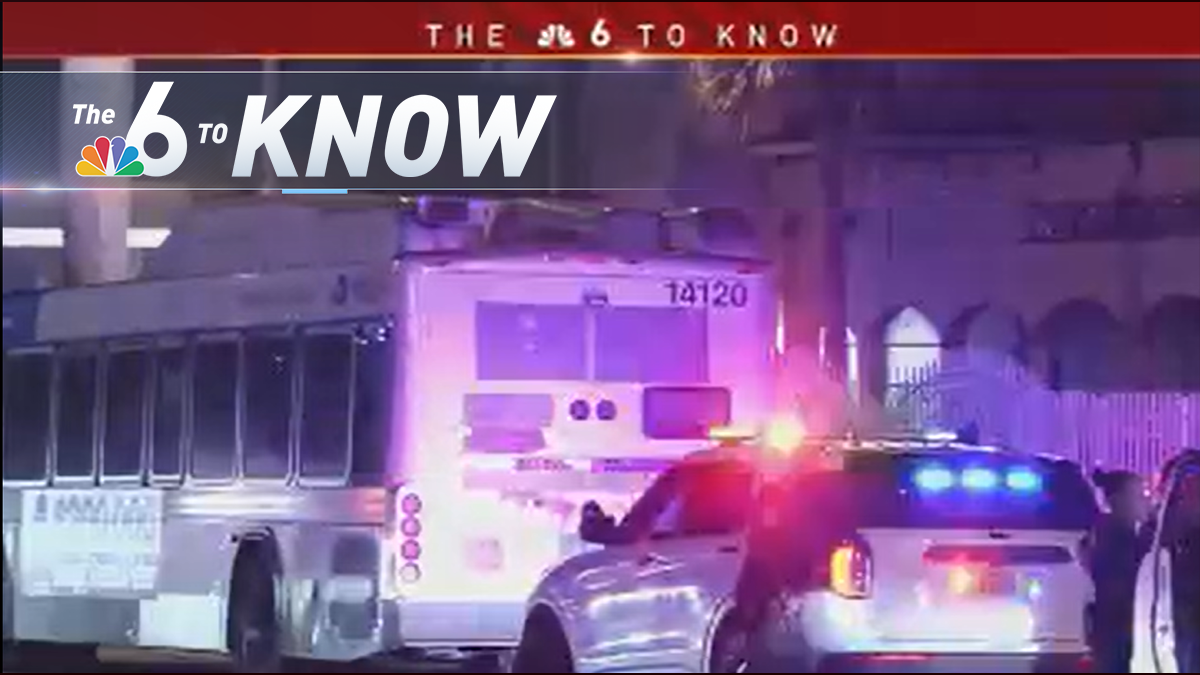At Lawton Chiles Middle School in Hialeah, they’re having students express their feelings with a daily effort called the SOAR program. NBC 6’s Ari Odzer reports.
Ask any parent, and you will hear that getting teenagers to bare their feelings about anything is harder than climbing Mount Everest.
At Lawton Chiles Middle School in Hialeah, they’re tackling that problem with a daily effort called the SOAR program. Every morning, each child’s homeroom class begins with the kids gathering in a circle, and the teacher prompts a discussion.
“I would love to hear what you have to say, and you know everyone has a chance to speak,” teacher Patricia Ferdinand-Julmis told her class as we watched.
This day’s topic was peer pressure.
“Everybody pressures you to do things you don’t want to do, sometimes you do it because you want to fit in or you want to be friends with someone,” one girl in this group of 8th graders said.
“It’s your decision to do what you want to do,” countered one of the boys.
The teacher is hoping the kids will bring up their innermost thoughts.
Local
“They’ll say come on, try it, but if you say no, they be like oh, for real, you’re lame,” said a boy in the group, relating his own experiences.
“It allows them to feel comfortable in this environment and that’s what we want, we want them to understand that there is someone listening other than their peers, there’s an adult actually taking into consideration the things that they’re saying,” Ferdinand-Julmis said.
“This program, we’re giving the students a voice, and we find out the things we need to know to help the student holistically,” said the school’s principal, Stephanie Tudor.
For example, they found out Gabriela Capera’s mom had passed away in August, three weeks before school started, and the girl hadn’t told anyone.
“The mentoring group has helped me a lot, ‘cause they always talk about problems around the world that I can relate to so I can like, speak about it and let it go,” Gabriela said. “It’s given me a boost of confidence.”
Through the mentoring sessions, faculty found out one boy was living in a car and they were able to find his family permanent shelter. Another student needed glasses, and faculty was able to take care of that issue. So it seems kids really are opening up.
“So I think it’s like a really good outlet for everybody to talk because when we come up we talk about serious topics that we might not talk about regularly and everybody opens up and I think it’s a good environment,” said student Carlos Perez.
It’s hard to measure how a program like this is working, but here’s one metric of success: attendance for these kids has improved.
“The biggest thing is, we got kids coming to school daily that want to be here,” Tudor said.
That’s no small feat, especially with at-risk kids.
“Kids are getting a sense of community out of this, it’s not just me, it’s my fellow neighbor that I’m sitting next to, that I’m living next to, and realizing that everybody has a story,” Tudor explained.
It’s a collective lesson in empathy as the students realize everyone has issues, and everyone can help everyone else.



